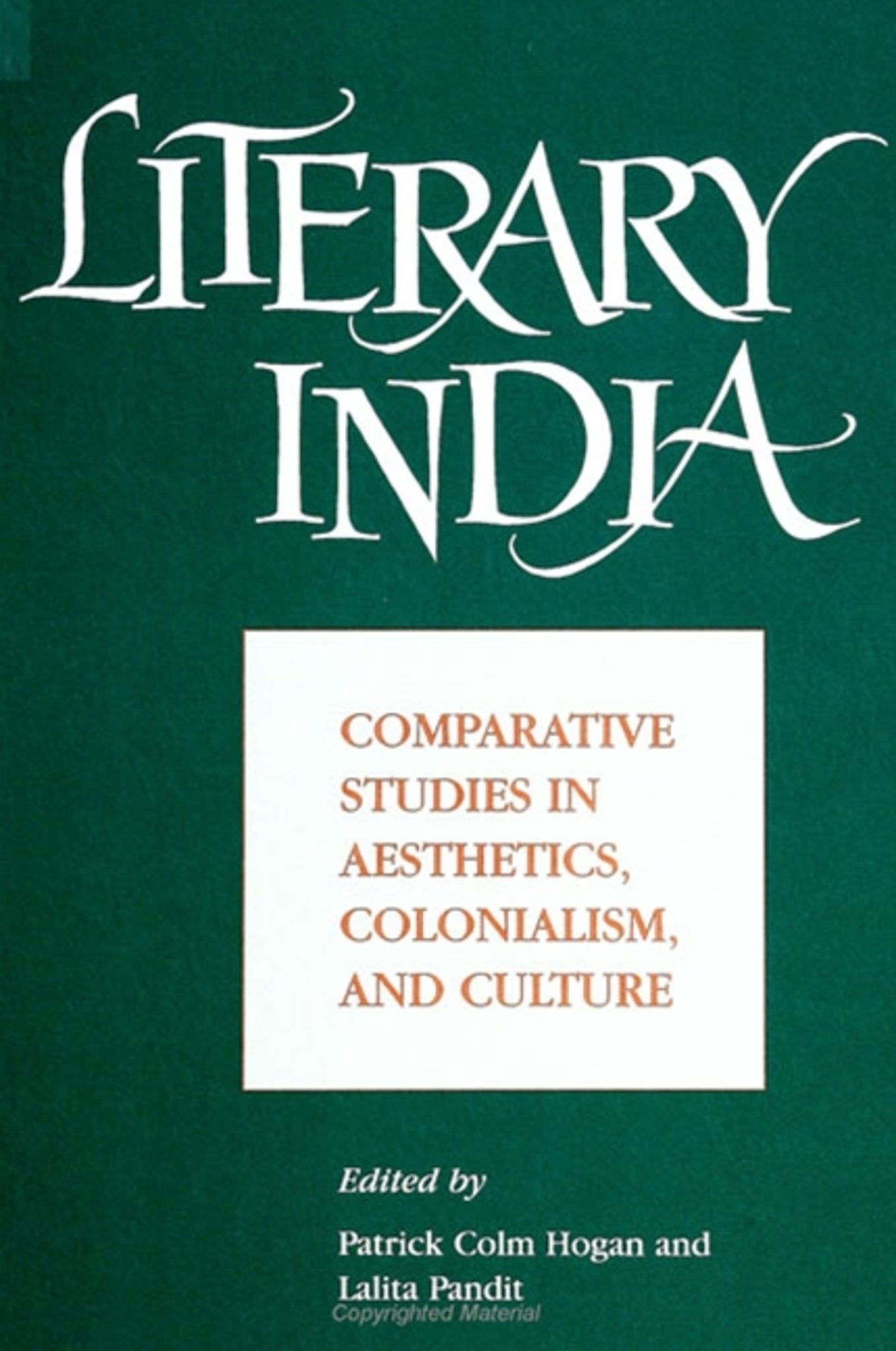We're sorry. An error has occurred
Please cancel or retry.
Literary India

Some error occured while loading the Quick View. Please close the Quick View and try reloading the page.
Couldn't load pickup availability
- Format:
-
01 July 1995

Analyzes a variety of materials from the Indian literary tradition. examining both its indigenous development and its relation to the West, and developing ideas from cultural criticism, literary theory, linguistics, and Indology.
This anthology explores the possibilities of a non-Eurocentric comparative literature. Contributors explain and analyze a variety of material from the Indian literary tradition, examining both its indigenous development and its relations with the West. In doing this, they draw upon and develop ideas from cultural criticism, literary theory, linguistics, and Indology.
This book begins with an examination of Indian and Western views on basic concerns of literary theory and aesthetics: authorship, genre, and literary language. Specific works of Indian literature are discussed, as are the striking similarities between eighth-century Sanskrit romances and Shakespeare's late plays; the indirect links of Asian folk and popular dramatic traditions with Bertolt Brecht's epic theater; the oppositional parallelism that marks Kipling's Kim and Tagore's Gora; the suggestive variations on the theme of exile in contemporary Indian cinema and Sophocles' Theban plays. The book ends with a re-consideration of post-colonial theory drawing on both Indian and European sources.


"The breadth of discussion of Indian literature is impressive. Texts analyzed range from classical Sanskrit works to contemporary films. Moreover, the use of comparative literature methodologies is certainly illuminating for those who have been schooled mainly in English literature or South Asian Studies. Comparatist approaches offer rich, new possibilities for literary and cultural analysis." — Janet M. Powers, Gettysburg College
"In all essays India and its cultural concerns are firmly anchored in global cultural and theoretical perspectives. This focus makes for originality and insight." — Steven F. Walker, Rutgers University
Acknowledgments
Introduction: Multicultural Comparatism
Part I: India and the Study of Comparative Literature
1 Beauty, Politics, and Cultural Otherness: The Bias of Literary Difference
Patrick Colm Hogan
Part II: Theorizing Cultural Difference and Cross-CulturalInvariance: Authors, Readers, and Literary Language
2 The Question of Authorship in Indian Literature
Jeffrey Ebbesen
3 The Genre Theory in Sanskrit Poetics
V. K. Chari
4 The Yolk in the Pea-Hen's Egg: Language as the Ultimate Reality
W. P. Lehmann
Part III: Interpreting Cultural Difference and Cross-Cultural Invariance: Precolonial, Colonial, and Postcolonial
5 Patriarchy and Paranoia: Imaginary Infidelity in Uttararamacarita and The Winter's Tale
Lalita Pandit
6 Ray's Devi
Norman N. Holland
7 The Poetics of Exile and the Politics of Home
Una Chaudhuri
Part IV: Hybridity and Universals: An Interlude
8 A Sense of Detail and a Sense of Order: Anita Desai
Interviewed by Lalita Pandit
Part V: Interpreting Literary Contact: Translation, Influence, and Writing Back
9 Translating Indian Literary Texts into English
P. K. Saha
10 Nautanki and the Struggle for Independence, National Integration, and Social Change: A Brechtian Analysis
Darius L. Swann
11 Caste, Race, and Nation: History and Dialectic inRabindranath Tagore's Gora
Lalita Pandit
Part VI: Theorizing Colonial Contact: Hybrid Identities and the Possibility of Postcolonial Culture
12 The Postcolonial Critic: Homi Bhabha
Interviewed by David Bennett and Terry Collits
13 Culture, State, and the Rediscovery of Indian Politics
Ashis Nandy
Notes on Contributors
Index



